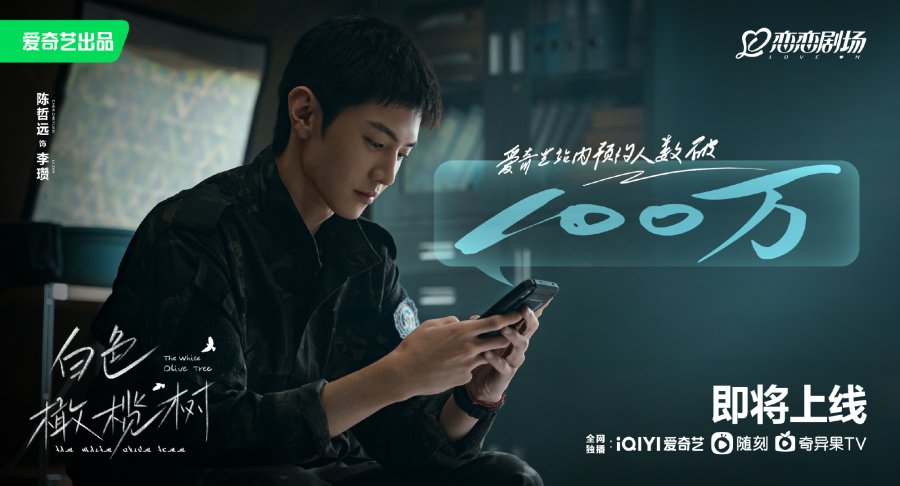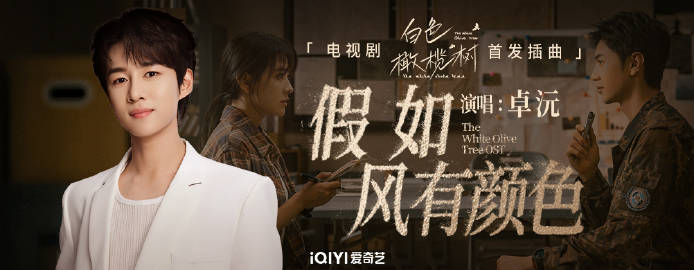      
 | Possibly airing on "Singles day" 11/11 after Chen Zheyuan's birthday on October 29, or in December. Latest info has it likely airing in the beginning of 2025.
白色橄榄树 [Báisè Gǎnlǎn Shù]. 40 episodes, iQiyi 2024 - high quality S+ drama - producer is Han Hao 韩颢 who already produced Wolf Warriors 2 (2017) and Winner is King (see below). Screenwriter Yan Qianzi 杨千紫 is an author and also wrote script for The Legends (2019) and Only For Love (2023 drama with Bai Lu and Dylan Wang). The other screenwriter, credited on Baidu : Han Hao 韩颢 is also a producer ; he wrote for Winner is King (the shelved drama of CZY).
Complete cast and crew was still not disclosed on Baidu, as of 2024.02.23 but a Twitter post (picture below the gifs to left) disclosed some already, listed on Baidu now :
<-- My Gifs of booting and the search for FL. (from Twitter repost of Weibo and TikTok videos, adding text and merged-. Story: Demolition expert and explosives engineer Lǐ Zàn 李瓒 meets Liangcheng TV reporter Sòng Rǎn 宋冉. They lose contact after a deadly bombing and after a time for recovery, find each other again to "plant white olive tree seeds together".
The novel《白色橄榄树》by Jiǔ YuèXī (玖月晞) was described as a dark tragedy about a soldier and a journalist [-> translation into English] so the drama adaptation should, after much discussion, tweak the adaptation towards a happy end. "Li Zan is not just a fictional character, he means a lot to novel fans. They regard him as one of the heroes of the country!" Two actresses had been too afraid of the FL role; Wang Yuwen almost left the production in a pinch, before Liang Jie quickly stepped in.
First trailer (1'42) on Weibo released 2023.09.21 with posters- GIF above from screenshots ; also on Twitter.
Drama booting ceremony took place on 2023.09.16 and filming started immediately in Sichuan, Liangshan Yi autonomous prefecture. Liang Jie arrived on Sept26 at Xichang airport nearby. Filming was scheduled for 150 days. It wrapped on 2024.01.13, and passed review successfully on 2024.07.11, to air 38 episodes.
News and videos accelerated as of 2024.02.23 - iQiyi released a new video of Behind the scenes and making of footage (4 Gif snippets in left column and below) and cast was announced while pictures of the set were posted for the "city" on a hilltop, that was built for the drama, to look like the real war zone Dongguo (Eastern country ) from the original novel .
The site, rented for the construction, and revealed to be in the south of Leshan (bordering to Liangshan) on Douyin, has become a tourist attraction in 2024!
One support actress, Florence Tan, gave an interesting interview to asiaone in Nov.2023.
 The TV series has its own Weibo pages. The TV series has its own Weibo pages.
Reservations were already over 619,000 o n iQiyi in April 2024 - link for reservation and some previews from the drama here for Chinese version, and here for international subtitled version. On August 30, there were over 1 million reservations.
btw, for those who don't know it, here's a link to the beloved song Ganlan Shu (The Olive Tree), lyrics penned by Sanmao, and sung by Chyi Yu. It was composed for an old movie about refugees, but can be remembered here. It has been covered by countless singers, and the symbolism is also in tune with the new drama. |



















